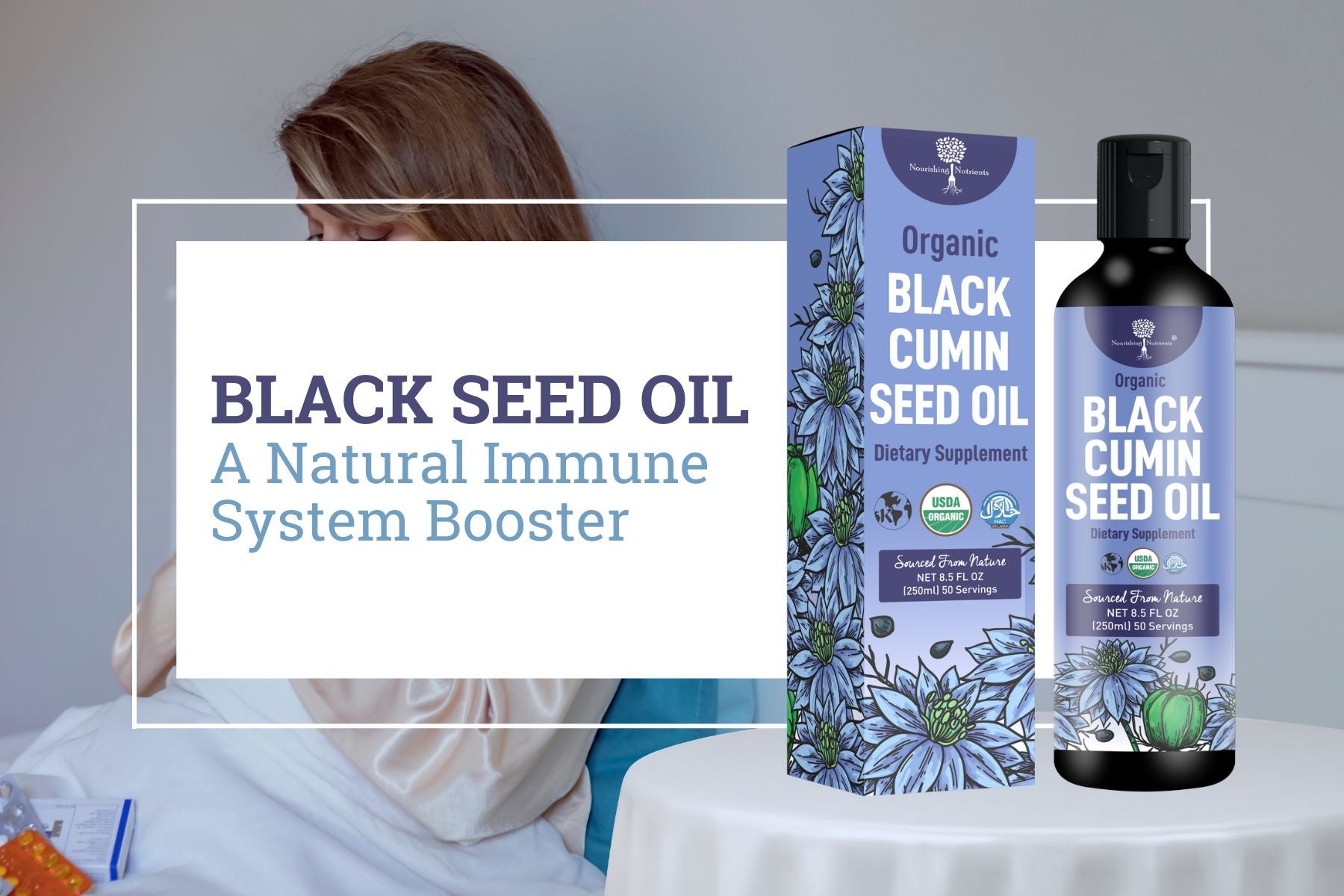What Is Black Seed?
Nigella sativa, often called black seed, is a flowering plant native to the Middle East and parts of Southwest Asia. Its small black seeds have been used for centuries as a spice and in traditional preparations. Other names include black cumin, kalonji, and habbat al-barakah (seed of blessing).

Black Seed Oil and Thymoquinone
Black seed oil is extracted by pressing the seeds of Nigella sativa. Compared with the seeds themselves, the oil is richer in thymoquinone (TQ), a key bioactive compound studied for its antioxidant and immune-supportive properties (Ahmad et al., 2013; Tavakkoli et al., 2017).
- Seeds contain TQ in smaller amounts along with fiber, protein, and other phytochemicals.
- Oil concentrates these bioactives, making it the preferred form for research on antioxidant and immune-modulating effects.
Thymoquinone is widely studied in laboratory and preclinical settings for its ability to:
- Act as a free radical scavenger (protecting cells from oxidative stress).
- Support the activity of antioxidant enzymes such as glutathione peroxidase.
- Influence signaling pathways related to inflammation and immune response.
Black Seed and Immune Support
Research suggests that compounds in black seed may help the body's natural defense systems in several ways:
Antioxidant activity: Thymoquinone helps reduce oxidative stress, which can support normal immune cell function (Ahmad et al., 2013).
Immune modulation: In a small human study, black seed oil supplementation was associated with improvements in certain immune markers, including natural killer cell activity (El-Kadi & Kandil, 1987).
Preclinical evidence: Animal and lab studies show that black seed extracts may influence cytokine balance and support immune homeostasis (Salem, 2005).
Note: Most of this evidence is early-stage or preclinical. More large-scale human trials are needed.
Everyday Uses
Traditionally, black seed and black seed oil have been consumed in foods, teas, or as dietary oils. Today, cold-pressed black seed oil is often used in research and supplement form due to its higher thymoquinone content.
Some common ways people incorporate it into daily routines:
- A few drops of black seed oil blended into herbal tea or smoothies.
- Crushed seeds added to breads, curries, or spice mixes.
Frequently Asked Questions (FAQ)
Q: What makes black seed oil different from black seed?
A: Black seed oil is pressed from the seeds of Nigella sativa and is richer in thymoquinone, the compound most studied for its antioxidant and immune-supportive properties.
Q: How does black seed oil support the immune system?
A: Research suggests that thymoquinone may help reduce oxidative stress and influence immune cell activity. Some small human and lab studies show immune-modulating effects, but more large-scale clinical trials are needed.
Q: How is black seed oil typically used?
A: It can be taken by the spoonful, added to warm teas or smoothies, or incorporated into meals. Because of its strong, peppery taste, many people mix it with honey, nut butter, or even take it after using mouthwash to mask the flavor.
Q: Are there side effects?
A: Black seed oil is generally well tolerated in moderation. Some people report mild digestive discomfort. Pregnant or nursing individuals, and those with medical conditions, should consult a healthcare provider before use.
Disclaimer: These statements have not been evaluated by the Food and Drug Administration. This product is not intended to diagnose, treat, cure, or prevent any disease. Always consult your healthcare provider before starting any new supplement.



